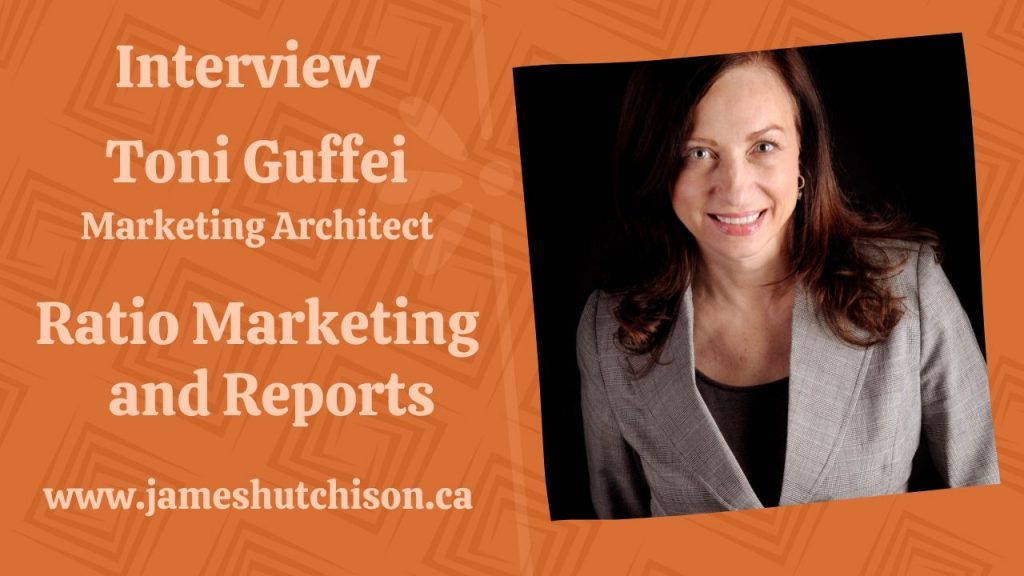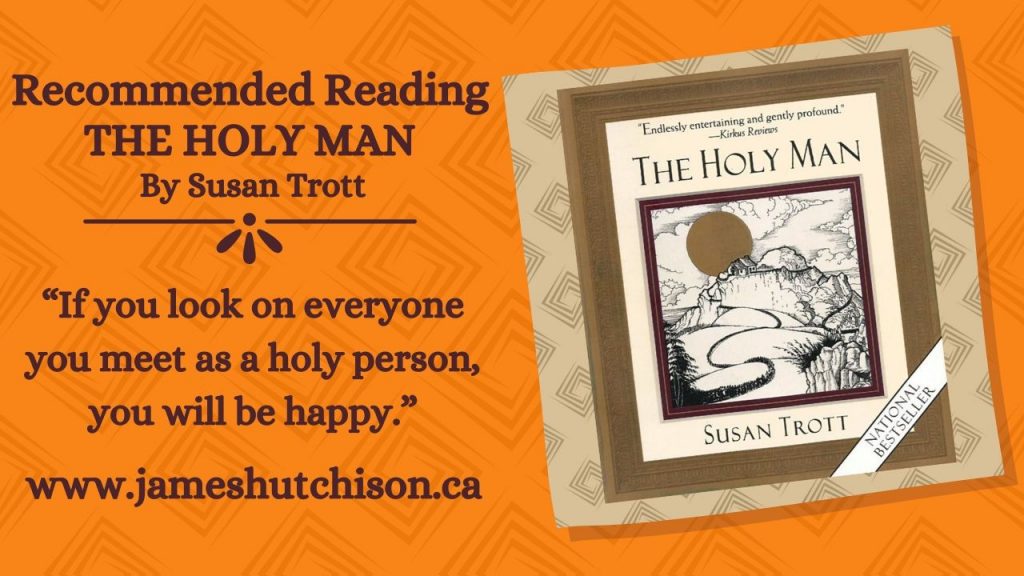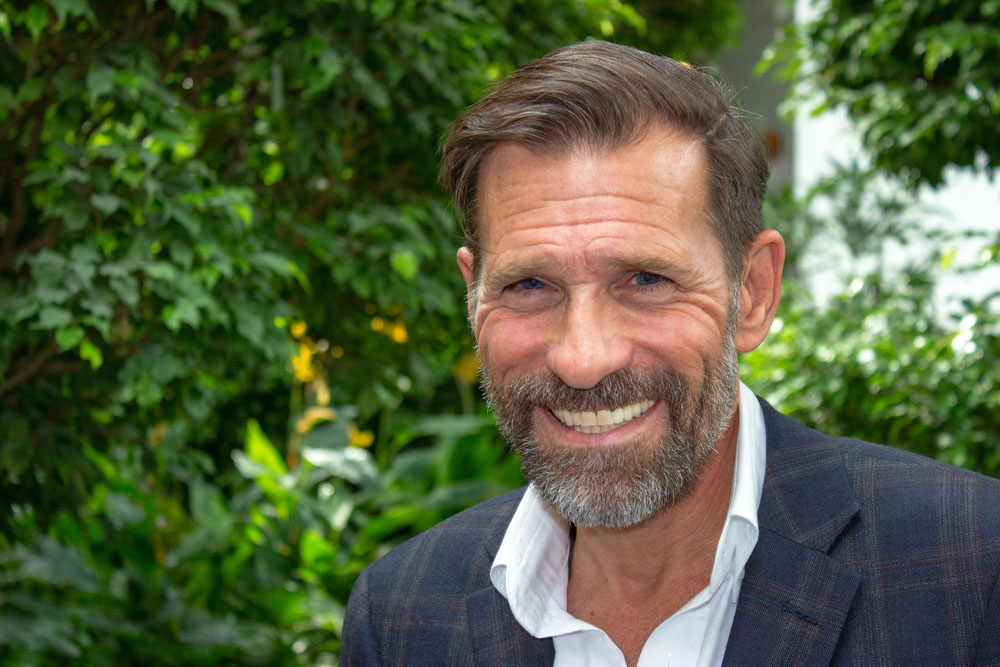
Barry Tuff, Rogers Media – Photograph James Hutchison
“I remember, there actually was a sort of a watershed year for me where I realized I must have arrived on some level because I had an unbelievable year of new business achievement and was rewarded for it. And I looked at it, and I realized that they were all referrals. Every single new business account was a referral. And I said, “That’s it. I believe I have arrived on some level. People trust me. They’re, okay to refer me.”
Barry Tuff, Rogers Media
You won’t stay in business long if you don’t get customers through your door or get customers purchasing your products and services online. And while social media and digital have opened up new avenues for reaching potential clients television and radio still attract a large audience and offer tremendous marketing opportunities. For several years I worked for Citytv writing and producing commercials and one of the people I worked with in sales was Barry Tuff. Barry is one of those sales guys who cares deeply about his clients and just as deeply about the people working at the station to help deliver an effective advertising campaign. I sat down with Barry to talk with him about his career in media, our predictions for the Stanley Cup, and his love of music.
JAMES HUTCHISON
So, we’re going to chat a little bit about life in media. Your life in media specifically.
BARRY TUFF
It’s been a long life.
JAMES
Where did you first start, and what year was it?
BARRY
In 1976 I started working for a company called Hook Signs which became Hook Outdoor the monopoly billboard company in Alberta. I was there for about two or three years. Years later, it was bought out by Jimmy Pattison and is now one of the largest outdoor companies in the world, but when I started there it was a beautiful experience because it was a small family run company. And your goal was to become a director someday and be able to share in those profits. After that, I left and tried out a few different things that didn’t work out very well and then I got into radio.
JAMES
Where was your first radio job?
BARRY
I went to work for CKXL in 1980.
JAMES
The CKXL of today is not the CKXL of 1980.
BARRY
Not at all. It was a top 40 radio station. The morning show had a 30 share and a share is the percentage of radio listeners tuned into a given station at a given time. And the personalities on that radio station were celebrities. It was incredible to be part of that. We had the XL sunspot sticker and it was on just about every car in the city and we had people running around giving out money if your sunspot was spotted and they pulled you over. We had the fun bus and the fun bus would be going up to the mountains all the time with winners in it. It was a party bus. So, there was lots of money and lots of ways to exploit it. And there wasn’t a hell of a lot of competition. We had CFAC which was a country station. We had CHQR which was easy listening and CFCN which was about the same.
JAMES
Radio was massive in those days.
BARRY
It was massive. We had a client that had these pots and pans they wanted to sell out of a farmers’ market that was located on Blackfoot Trail, and they spent a couple thousand dollars to buy some radio spots on CKXL to sell this truckload of pots and pans. Of course, these were the best pots and pans in the world at an incredibly discounted price. I think it was 35 bucks in about 1982. I went to check it out and I couldn’t get close to it. The traffic jam was incredible. There were literally people parked on the boulevard running up with their money in their hands to get a hold of these pots and pans. That kind of stuff would happen all the time. So, you knew people were listening, and they were responding, and it was nice to be a part of that. Of course, you reflect on that now because the world today is so fragmented.
JAMES
And now you’re working for Citytv but when you started here it was still A-Channel which was owned by Craig Broadcasting.
BARRY
It was A-Channel, the last of the independents. And we survived with our hard work and ingenuity and you know, being a good alternative and providing great value and great service to our clients. And then A-Channel was sold to CHUM out of Toronto, and A-Channel became Citytv, and then CHUM was sold to CTV, and CTV couldn’t keep all the assets.

JAMES
Because at the time the CRTC said you can’t have two television stations owned by the same company in the same city and CTV already owned CFCN here in Calgary.
BARRY
And then Ted Rogers who was always known as a bit of a maverick said, “Here’s a cheque. Go get Citytv. I want it.” And so, we went from the little station that could to an iconic Canadian brand – Citytv, and then Rogers bought us and they’re a company with really deep pockets, and that really put us on the map.
JAMES
You’ve done local sales for a long time in radio and television and worked with a lot of local clients in this market. What are some of the things you would tell a client today that they should be looking at in terms of their use of media as part of their marketing message?
BARRY
I think consistency is essential.
JAMES
When you say consistency what do you mean?
BARRY
You want to be on-air as often as you can and as much as you can. You really need to stay front and center at all times. And that doesn’t necessarily mean you have to have a huge budget. You can narrowly cast your net and just buy Breakfast Television for example and be there all the time, and by doing that you can build your business and build your brand. You have to be there in good times and in bad times, it’s insurance, and you’re going to gain market share because others aren’t there consistently, and so when the good times come you’re going to do really, really well.
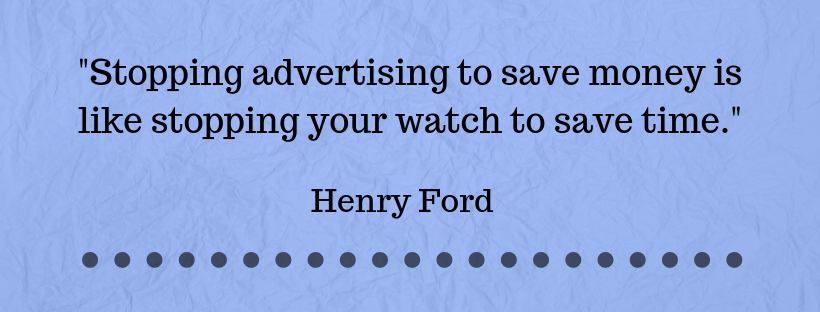
JAMES
You’re talking about keeping that top of mind awareness in the consumer’s mind because people do forget.
BARRY
Yes, they do.
JAMES
If you look at national brands they always dedicate budget to brand awareness in conjunction with their sales message. And the sales are more successful because the branding message keeps them in the consumer’s mind, and there’s statistical evidence to prove that the brand advertising impacts positively the sales advertising, correct?
BARRY
Yeah, well, it triggers associative memory or your reticular activation system, you know, by which when you’re in the market for something all you see is that advertising, right? And when you’re not in the market for something it retreats. You don’t notice it. And as a salesperson, I can not emphasize enough the importance of being prepared and asking the right questions when you meet a new client. You should know all about them, and you should do all your research. That’s one thing that’s changed. I remember spending time in the basement of the public library downtown looking at microfiche and annual reports before going out to a client. That was an afternoon. Now it’s pretty easy to get that information from their website.
JAMES
But you still need to hear from them.
BARRY
You still need to find out what their pain points are, what their goals are, what their challenges are, and where they aspire to be. And often, they’re confused, you know, you need to help them focus because there are lots of choices now. We do lots of digital. Rogers Media has a full line of products that we can geofence and geotarget, and we’re fully integrated with our other media divisions. We have digital and television, but we also have our radio group in Calgary which includes CHFM, 660 News, Jack FM and Sportsnet 960. And the vision for media companies these days is that they can provide all your solutions with just one call.
And a lot of clients in a tough economy want extra value and one way to do that is to develop partnerships and promotions. And we’ve got lots of ways to do that. We’ve got segments on Breakfast Television they can sponsor, we’ve got live eyes, we’ve got a great promotions department so there’s contesting. And that way you can add layers to a 15 or 30-second ad campaign. We do lots and lots of that. And one of the most gratifying things we do is working with charities on that basis and developing partnerships.
JAMES
What are some of the local charities that you’ve worked with?
BARRY
We have worked with organizations like The Mustard Seed, Inn from the Cold, and Safe Haven. Those are just three of them. Rogers supports charities and they’re good corporate citizens. They encourage their employees to volunteer, and Rogers gives every employee one day off a year during work time to volunteer if they choose to. And then we have a weekend in June where everyone in the company is encouraged to go out and volunteer. And this year we went out and volunteered at the YMCA’s Camp Riveredge, and we helped the grounds crew clean up and get things ready for their season. And we’ve also volunteered at the Mustard Seed and at the Calgary Food Bank. And we partner on events like the Calgary Marathon and this year we produced a series of vignettes. They were profiles in courage really and told people’s stories about how they started running and how it changed their lives and we hope that those stories might inspire someone to try something they might not normally try. And radio was there, and Andrew Schultz from Breakfast Television was at the finish line, and Ted Henley from Breakfast Television starts the race and announces the runners as they cross the finish line.
JAMES
What are some of the clients you’ve had for the longest?
BARRY
We’ve worked with Toyota for 20 years and when you work with a client that long you really get to know each other. And the key is to never take each other for granted. Just like a marriage. Because you cannot rest on your laurels and assume that’s going to be there from one year to the next. So, you have to foster that relationship constantly. We’ve worked with Broadway Across Canada for many, many years. I remember the first time they came through with a Broadway production I thought, “Well, this is great. It’ll come and it’ll go.” Well, I think we’ve worked with them for probably 15 years now. We partner with trade shows and festivals. A lot of individual events. The Circus comes to town once a year, and Disney on Ice comes to town once a year, and the Monster Jam and on and on and on.
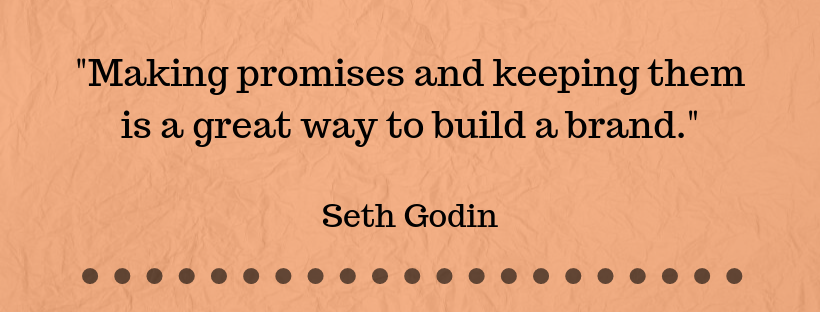
JAMES
Let’s talk a little bit about the new season and one of the new shows you have on your schedule is Four Weddings and a Funeral. What can you tell me about that one?
BARRY
It’s based on the 1994 movie that starred Hugh Grant and Andie McDowell. It’s produced by Mindy Kaling. She was in the office and she’s a comedian, she’s had a pretty popular show recently, but now she’s branched off into the movies and she’s behind the scenes of this one as a producer. It’s about relationships and how complex they are and we hope it resonates with people. It will air Thursday nights at 10 o’clock.
JAMES
And then you’ve got a new situation comedy coming up called Mixedish.
BARRY
Mixedish is the prequel to Blackish. It’s about a mixed-race family that lived on a commune and then moved to the suburbs and the children have to navigate a school culture where they’re not perceived as either black or white. So that’s got some real potential and it’ll run from 9:00 to 9:30 on Tuesdays and Blackish will run 9:30 to 10. So, same production company and same writers and if it does half as well as Blackish we’ll be pretty happy.
JAMES
There’s a midseason replacement that looks interesting called Council of Dads.
BARRY
It’s about a fellow that’s been diagnosed with terminal cancer and he’s very principled and he wants to make sure that his philosophies about life are passed on to his kids after he’s gone. So, he puts together a council of his friends who are also dads to step in after he’s gone and guide his children. And when we showed the trailer to our ad agencies we had a disclaimer saying that this one may bring a tear to your eye because of what it’s about, and we had people reaching for the tissues. It should have some impact, and it’s a great message.
JAMES
And on your Saturday nights – what have you got programmed there?
BARRY
This will be the fifth season of our owning the NHL broadcast rights and between the City stations, Sportsnet and our partnership with Hockey Night In Canada on CBC we’ll produce and broadcast 500 games plus every game in the Stanley Cup playoffs. And of course, the best part is that because it’s sports anything can happen. And this year we had some Canadian teams, including the Flames, in the first round.
JAMES
It would have been nice to have a few more rounds.
BARRY
It would have been nice to have a few more rounds, but that’s sports and every season there’s always going to be some great memorable moments, and there’s a large audience who are big fans that will show up and watch.
JAMES
Quick question for you then. As a Calgarian I know you won’t be biased on this, but what’s your prediction for who will the Stanley Cup next year?
BARRY
(Laughs.) I can not make that prediction.
JAMES
I can. Calgary Flames, man. Go Flames Go all the way.
BARRY
Yeah, it’s the Flames turn.
JAMES
That’s right.
BARRY
It’s been a long time. It’s the Flames turn.
JAMES
So, you’ve had a long career in sales.
BARRY
Forty-three years.
JAMES
So, looking back on that forty-three years, what do you think it is that makes a salesman good at their job? What are the qualities you think you need to be a top salesperson?
BARRY
I think you need a work ethic, for sure. You need discipline. You need to look after you so you can look after other people. And you need to be informed. And you have to be interested in things and inquisitive, and you have to have empathy, above all, because it’s not about you. It’s about the client and any client that you go see their first question is going to be, “So what’s in it for me?” And you have to be very cognizant of that. So, first you have to find out who they are, where they’re at and where they want to be, and then make a proper recommendation based on education and experience. And if anybody is interested in selling you have to study selling from the masters. There are books. There are seminars. There are YouTube videos. You have to become a student for life because even when you are at the top of your game you’re never done.
JAMES
There’s never a, “You Made It,” party.
BARRY
There is no finish line. I was just talking to somebody this morning and I asked him, “How’s the year going so far?” And he said, “Well, I had my best year ever last year and you know what that means for this year?” It’s hard to overachieve when you’ve had your best year ever because you become the victim of your own success so you’re always chasing something.
JAMES
Plus, we should say that when you’ve had your best year ever your sales manager looks at you and goes, “How are we going to improve on that and deliver an extra 10% this year?”
BARRY
Yes.
JAMES
So, what do you think people misunderstand about the sales profession? What do they get wrong?
BARRY
I think it’s those terrible clichés. It’s the huckster. It’s the pitch person. It’s the snake oil salesman. And sometimes when you walk into a new business and even though you’re not like any of those and you’re professional you can often get judged based on the last few that were in the door before you. So, when you meet new clients, you’re always having to earn the right and always having to earn their trust.
JAMES
So, what I’m hearing from you is that part of being a successful salesperson is establishing, maintaining, and growing your reputation.
BARRY
Reputation is everything. I remember, there actually was a sort of a watershed year for me where I realized I must have arrived on some level because I had an unbelievable year of new business achievement and was rewarded for it. And I looked at it, and I realized that they were all referrals. Every single new business account was a referral. And I said, “That’s it. I believe I have arrived on some level. People trust me. They’re, okay to refer me.”
JAMES
Because that’s putting their own reputation on the line.
BARRY
Yes, it is. And you can feel it. Reputation is everything.
JAMES
Reputation and integrity.
BARRY
Hand in hand. And, above all, you always want to seek ways to be inspired so that you can inspire other people.
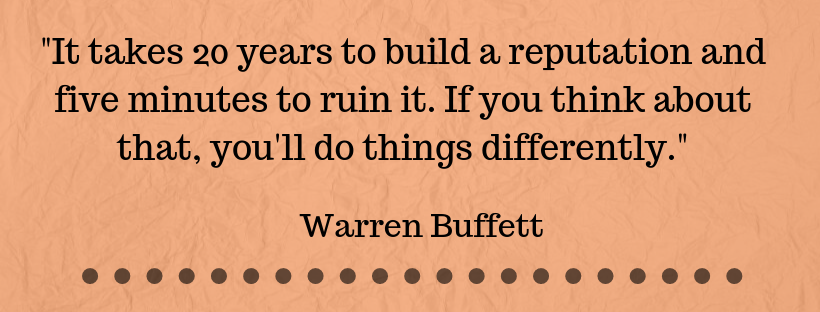
JAMES
Okay. Well, then speaking of being inspired let’s talk about another interest of yours. You’re a musician?
BARRY
Yes, I am.
JAMES
How long have you been a musician?
BARRY
For as long as I can remember. I started playing drums probably at the age of 11. And I think I got together with other musicians and jammed for the first time probably when I was about 15 years old. And then starting in the 80s there were these six-night cabarets and we put together a great band and we played all over, it was a tremendous band.
JAMES
What were you called?
BARRY
The band was called Body Talk and we had a massive P.A. and light system and it was a good-looking band and we dressed well and we had sound effects. We did cover material, but it wasn’t necessarily the most popular covers, but it went over very well and one of our first gigs was opening for Chubby Checker. And Chubby’s a good guy and he was playing with a bunch of New York musicians who were on the road with Chubby just trying to keep the dream alive.
And then we became an A-Circuit party band called Cross Section and we had a beautiful girl that sang with us. It was a real show band and we played for companies that would have these lavish parties and they’d hire us. Mostly one-night corporate stuff which was way better money than playing six nights in a cabaret. We finally figured that out. And since then I’ve been in some country trios and I played in a gospel band for a few years at a church.
JAMES
So, music has been a cornerstone of your life and I’m wondering what is it you get out of music? What does it provide?
BARRY
It’s a high, it just is a tremendous high when those lights come on. And I ended up playing with a very talented musician who drove us to rehearse past our abilities. And I hate to rehearse but he said, “If you are overprepared on your best night you’re going to blow everybody’s mind, and on your worst night you’re going to be really good.” And he was right.
JAMES
Who was that?
BARRY
Frank Windsor. He’s a commodities broker in town, and he’s an incredible musician. Just incredible. And, that was a good lesson. And it’s a lesson that you can certainly apply to just about every area of life. You have to be willing to put in the work in order to be prepared and do your best.
